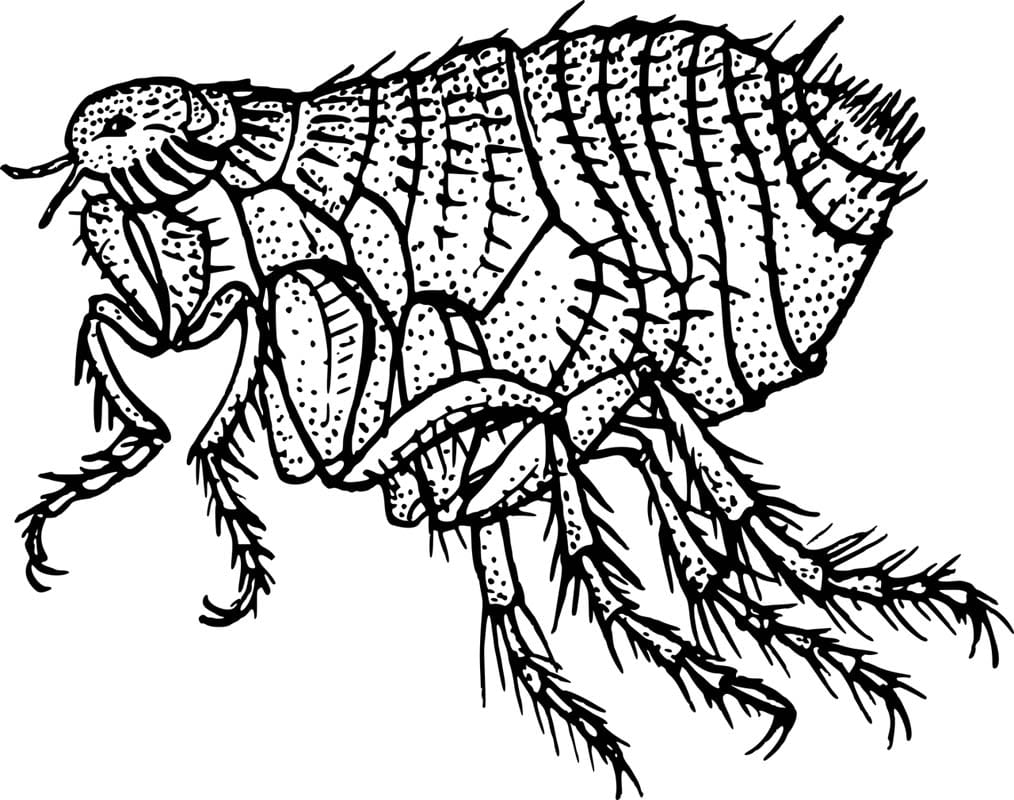Most of our pet owners at St Vincents regularly treat their pets for worms as well as skin parasites like ticks and fleas.
In my experience any owner who has found a tick on their pet is repulsed and will always take measures to prevent the situation recurring. While the sight of a tick attached to your dog or cat may be disturbing, there are also potential health issues related to tick and flea infestations that are far more significant.
Today I would like to talk about the significance of ticks and diseases associated with them in dogs but should also mention fleas briefly.
Flea allergic dermatitis is a frequent consequence of flea infestations, and can cause severe discomfort to both cats and dogs while being brought under control.
Flea eggs and pupae can survive for a long time in the environment, and once a household has had an infestation it can be quite intensive to control recurring infestations.
Fleas can also bite humans, and some individuals can have quite nasty reactions to these bites. These days there are many products on the market to treat animals for fleas, but I would strongly recommend that you talk to your veterinary practice to ensure that you are using a safe and effective product.
Owners have become increasingly aware of ticks over recent years, but there is still some uncertainty over the implications of tick borne diseases.
The most well-known disease associated with ticks is Lyme disease. This is a debilitating terrible disease that can affect people, and can lead to lifelong repercussions in some cases.
Lyme disease is caused by a bacterium called Borrelia transmitted by ticks when they feed. This bacterium can also cause disease in dogs.
In a large survey done a couple of years ago, 3% of ticks taken off dogs in veterinary practices in the south of England were positive for carrying Lyme disease. This poses a real threat to human and animal health.
At St Vincents Vets we feel that an effective treatment protocol for ticks in dogs that prevents the tick from feeding as well as laying eggs not only protects the dog from this terrible disease, but will lower the environmental contamination and thus reduce the risk of human exposure to Lyme disease.
Ticks can also cause a local reaction in the skin of pets at the site of attachment. I have seen some of these reactions present as large ulcerated lesions not dissimilar to some skin tumours. These lesions are painful and often secondarily infected and require treatment to resolve.
As a rule we would choose a product that prevents the tick from starting to feed and releasing saliva into the tissue fluid at the attachment site which can trigger these reactions.
And there is another disease looming, often called biliary fever or Babesiosis in dogs. This tick-borne disease is a parasite that is transmitted into the dog’s blood stream as the tick feeds. Each individual parasite penetrates a red blood cell, replicates into four parasites, ruptures the cell and then each of the four new parasites invade a red blood cell.
This disease causes massive red blood cell destruction leading to severe anaemia and death if left untreated.
The reason you may not have heard too much about this disease is that the species of tick responsible for carrying this parasite is not found in the UK.
Dogs travelling to the continent would be at risk, but last year two dogs that had never travelled became infected with the disease. This means that these ticks had managed to survive in the UK and infect a local dog.
Before moving to the UK at the end of 1999 I practised for three years in South Africa, where Babesiosis is a constant and prevalent threat. Having experienced the challenges and heartache of this disease, I am totally committed to my regular mantra that prevention is better than cure.
I have discussed the clinical signs, diagnosis and potential treatment with my staff so that we are prepared in the event of a case of Babesiosis presenting to us in order to increase the chance of a successful resolution.
As the warmer weather approaches and the risk of ticks increases, I would strongly advise pet owners to please ask for veterinary advice on effective treatments for ticks and fleas that will also ensure prevention of transmission of these diseases discussed today.

Michael Morrow owns and runs St Vincents Veterinary Surgery, an independent family owned practice providing personal care for pets in and around Wokingham. Should you have any concerns about your pet’s health please contact the practice for advice

















































